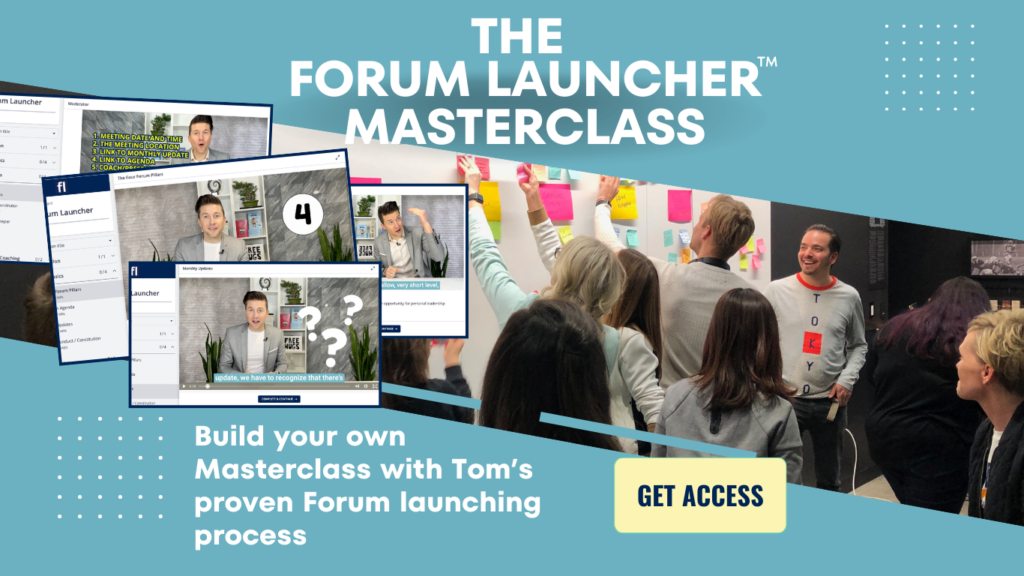One powerful Deep Dive option is the Role Play Deep Dive which is particularly useful for tackling challenging situations. This process allows presenters to practice real-life scenarios within a safe and supportive environment.
Ideal scenarios include:
- Difficult Conversations: Firing someone, delivering bad news, addressing performance issues.
- High-Stakes Presentations: Keynote speeches, investor pitches, important client meetings.
- Conflict Resolution: Confronting someone, mediating disagreements.
Here’s a step-by-step guide to running a successful Role Play Deep Dive:
Part 1: Setup (3 minutes)
- The coach briefly outlines the scenario and the core challenge (1-3 sentences).
- Roles for each Forum member are clearly defined beforehand.
Part 2: Presenter Background (8 minutes)
- The presenter provides context: purpose, involved parties, timing, and any other relevant information.
Part 3: Q&A (8 minutes)
- The group asks clarifying questions to ensure a shared understanding of the scenario. Focus on questions that help the presenter, not those that derail the process.
Part 4: Role Play (15 minutes)
- The role play commences. Encourage participants to stay in character to create a realistic experience for the presenter. The duration can be adjusted based on the complexity of the scenario.
Part 5: “If I have this Challenge…” (90 seconds each)
- Each person in the group shares what they would do if they had this challenge.
Part 6: Final Thoughts (2 minutes)
- The presenter reflects on the experience and shares their thoughts and/or thanks.
Facilitator Tips for Success:
- Pre-Meeting Coaching: Pair the presenter with a coach to prepare beforehand.
- The “If I had…” section is a quick summary of what you would do next if this were your challenge. DO NOT GIVE ADVICE TO THE PRESENTER
- Role Assignment: Define roles before the meeting to save time.
- Focused Q&A: Keep questions relevant and clarifying, avoiding tangents.
The Role Play Deep Dive is a powerful tool for practicing crucial conversations and presentations. By creating a safe space for rehearsal and constructive feedback, the presenter can build their confidence and skill. It’s a highly effective way to transform your Forum meetings from theoretical discussions into practical skill-building sessions.

